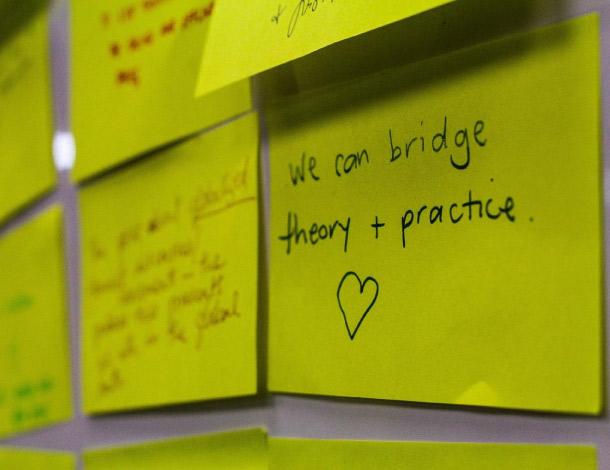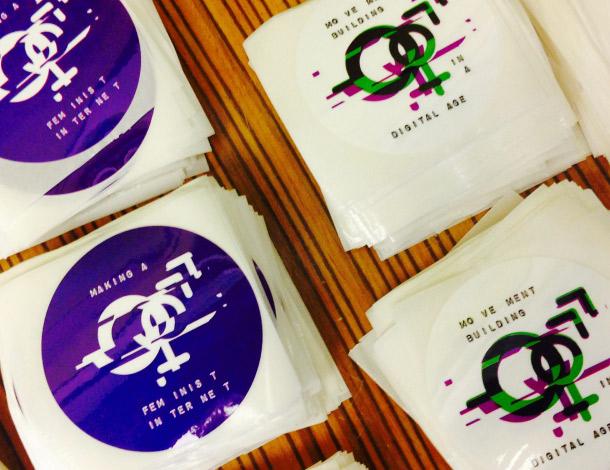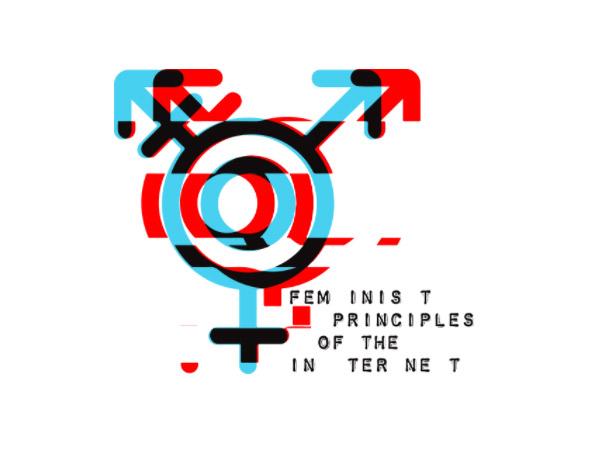Internet technologies are firmly embedded into many of the landscapes of feminist organising. But the ‘online’ is still an extension of the ‘offline’ in many ways.
“The Internet we have today is a representation of life outside the Internet. It represents the marginalisation of some groups of people (women, especially women of colour, people with non-conforming gender and sexual identities, the differently abled, and other minority groups). It represents discrimination. It represents misogynist attitudes and ideas. It represents violence…”
Dyta Caturani’s rallying call recognising the need for a feminist Internet points to the fact that deeply embedded hetero-patriarchal-capitalist norms we experience in our societies today are also playing out and replicating the same harms and oppressions online.
There are countless examples. European research recently estimated that one in ten women in the European Union have already experienced a form of cyber violence since the age of 15. This includes cyber stalking, harassment, hate speech and non-consensual pornography or ‘revenge-porn’ among other forms.
A recent study by Nepalese feminist organisation Loom found that in their context, young women in particular are being harassed for being “too vocal” online.
How can we make a feminist Internet? One that is supportive of resilient and strong movements, and that is both a site of, and a space for, our activism?
Feminists are exploring these questions as part of the Imagine a Feminist Internet project led by the Association for Progressive Communications (APC). In 2014 and 2015 APC hosted the first two Gender, Sexuality and the Internet meetings, which were called “Imagine a Feminist Internet”.
These convenings resulted in the co-creation of the Feminist Principles of the Internet (FPI) by more than 100 activists from women’s rights, sexual rights and Internet rights movements that outline “key areas seen as critical to realise the transformative power of the Internet for rights, pleasure and ending discrimination”.
So far the Imagine a Feminist Internet project has brought together activists from almost every region of the world, including South Asia, Africa, Middle East and North Africa (MENA), Southeast Asia, East Asia, Pacific, Europe, North America, Latin America, Caucasus, Central Asia, Europe…
The most recent convening - Making a Feminist Internet - was an incredible gathering of activists with diverse experiences, expectations and expertise. And we took advantage of these days together to find (and swim in) the pools of convergence from our many different streams in order to make progress on our odyssey of making a feminist Internet.
Why do we need a feminist Internet?

The Internet has been “an earthquake for the feminist movement(s), as we don’t need to be registered and organised like an NGO (Non Government Organisation)”, according to hvale, who coordinates APC’s EROTICS initiative in South Asia on sexuality and the Internet.
It enables difference, diversity and flexibility across time and space more than ever before. And it’s true that the Internet has created new possibilities for connection, belonging, expression and activism. It has also enabled indispensable tools and platforms for organising and challenging oppressions around the globe - particularly in contexts where physical organising is dangerous and/or illegal or simply impossible.
For example, access to the Internet for detained Manus Island refugees has enabled swift responses from human rights groups. Left in limbo and without food and water after the Australian-run detention centre in Papua New Guinea was shutdown in October, the refugees refused to leave, fearing for their safety.
Reporting in real time via social media, however, they have been able to access and capture the attention of global media and refugee advocates, and as a result campaigns and demonstrations have proliferated, raising awareness of their situation, challenging the Australian government’s ‘Pacific Solution’ refugee policy, and urging the resettlement of the refugees in Australia or New Zealand.
For feminists in particular, the Internet allows space to carve out and amplify feminist discourse in contexts where women’s voices are being ignored or oppressed. For instance, Ninka Khaindrava from Georgia, who attended the Making a Feminist Internet convening and manages social media for the Georgian young women’s collective ‘Women’s Gaze’, said in an interview with APC:
“What we are trying to do is to create an online feminist discourse. To occupy the Internet actually. We are doing this especially for the young Georgians, so that these women won’t get recruited into or intimidated by the fascist discourse”.
The Internet also allows activists to adapt quickly to government crackdowns on rights, such as LGBTQI organising in Russia and the North Caucasus. Diverse expressions of sexuality and gender are severely oppressed in this region with swift crackdowns, arrests and even disappearances - such as the recent horrifying round-up of suspected gay men in Chechnya. With such tightly controlled government narratives through the traditional media in Russia, people have turned to the Internet for greater freedoms in political and social debate.

The Russian government, however, has recognised the Internet as a threat - in particular social media - and is pushing harder to control and censor this arena as well. But Internet users have quickly adapted to this - for example using memes which cannot be traced - to continue to express their views online, so far with some interesting results.
Notwithstanding the opportunities and adaptability the Internet provides for feminist and other rights movements, the online continues to be a representation or continuation of the ‘on ground’ in many negative ways - such as online violence - and particularly for women and those identifying as gender-fluid or gender non-conforming.
This is why we are making a feminist Internet.
Movement Building in a Digital Age
The Feminist Principles of the Internet are an evolving framework for the Internet feminist movements want and need, not only responding to the challenges of the Internet, but presenting a set of imaginings and propositions. And we are already shaping, creating and navigating the Internet in ways that are changing it.

Feminist activists will largely agree that we are stronger when we act together, and that our movements have the power to transform our world for the better. But what we need to reflect on and consider more in terms of making our movements stronger and more resilient in a digital age is Power with a capital P.
The Internet was originally seen as a way to democratise power, and access to the Internet has impacted how we organise and methods to circumvent traditional institutional pathways. But the Internet is a mashup of the public and the private, on the one hand enabling big corporations to control and use our data, yet on the other enabling new, safe spaces to express and find community and to control our own narratives.
Mapping out some answers to these questions, we will be in a better position to use the FPI as a framework to bring the feminist Internet to life. Most importantly, we don’t need to wait until we have all the answers - we’re literally making a feminist Internet simply by asking the questions and daring to imagine it.
The Imagine a Feminist Internet project continues to create new motivations, friendships, alliances, ideas and strategies for feminist movement building, exemplified by some of the conversations held at the most recent convening - Making a Feminist Internet. It has also brought together a robust yet stealthy global network of diverse feminist activists already engaged in the making of a feminist Internet. From feminist servers to breaking the binary of the online/offline to hacking digital security - we are already making strong headway.
Like all odysseys there will be adventure, uncertainty, discovery, mistakes, joy and sadness. But since it’s a feminist odyssey it is already amazing. The fluidity of our activism across the online and onground, and our embodiment of them both, means that making a feminist Internet is just one way we are creating feminist futures.
